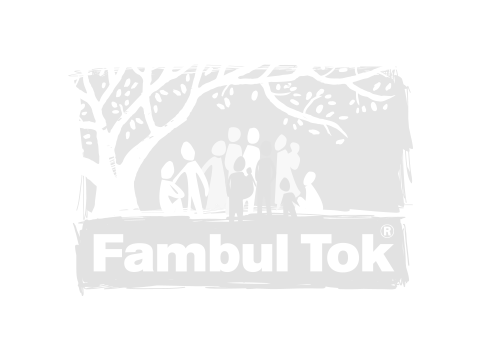After watching the Fambul Tok film, American teenagers from Inner city in Philadelphia were very much touched by what they saw and were inspired to apply Fambul Tok principles to problems in their own school; a few weeks later they even started a Fambul Tok club. In order to support their efforts, Catalyst for Peace, a U.S.-based foundation working in partnership with Fambul Tok International—Sierra Leone developed an educational guide for schools in the US to help other educators support this initiative.
Also aware of the fact that the guide was purely developed for schools in the US, Catalyst for Peace and Fambul Tok International—Sierra Leone convened a teacher’s workshop in February 2013 at Njala University campus in Moyamba district in Sierra Leone that brought together 20 teachers from ten schools across the country. The reason for the workshop was to introduce the educational guide to teachers so that they could also make inputs and adapt it to Sierra Leonean audience. The teachers and Fambul Tok staff went through the guide page by page, making necessary amendments.
Fambul Tok also decided to introduce the educational program in schools and presently it is working with 12 schools, two from each district (Moyamba, Kailahun, Pujehun, Kono, Bombali and Koinadugu). The students embraced the idea and teachers planned to use it to mobilize a new generation in grassroots peacemaking and reconciliation.
The two guides (the facilitator and student workbook) are a rich, complex and powerful resource for academic learning, character development and community building. The guides will be updated as new activities and lessons are developed and shared.
Officially launching the educational guides on July 23,2013 at the Fambul Tok head office in Freetown, Executive Director John Caulker said the Fambul Tok reconciliation program is gaining momentum in the country and beyond, adding that it creates space for Sierra Leoneans to tell their stories and embrace each other in a spirit of forgiveness and reconciliation.
He stated that communities have within them the answers to their numerous problems and the people most impacted by the then war in Sierra Leone have the potential to lead the reconciliation process grounded in their own culture and tradition, this he stressed is a big lesson the people of Sierra Leone are teaching the world.
‘’Our work in Fambul Tok is to coordinate bringing communities together to lead their own process of reconciliation. We don’t dictate but just set out the platform to engage and this is what we will continue doing “Caulker told his audience.
These guides, he went on will support the first Fambul Tok student peace clubs and adapted to support programs in all Fambul Tok communities and even those that are yet to be targeted.
Fambul Tok Director of Operations and Management, Amos Lansana said Fambul Tok is now in six districts (Kono, Kailahun, Koinadugu, Moyamba, Bombali and Pujehun).
“In Kailahun district alone we are working in 61 communities and each of these communities has its own project,” Lansana emphasized
He continued, “In our work we have realized that community reconciliation brings about peaceful co-existence and this is bringing people together. We also work towards community livelihood projects and community farms have been established”
Lansana also spoke about the existence of peace mothers in Fambul Tok operation areas and their livelihood projects such as farms, micro credit schemes, fish farming, etc., adding that most of them have been trained to do business and other activities
He stated that Fambul Tok does not take truckloads of money to communities but support is given where necessary.

